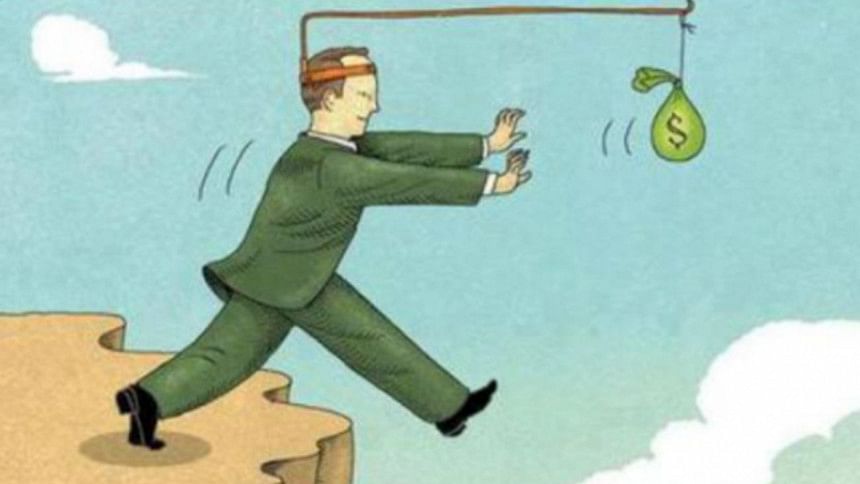New Year revelry and our declining chivalry

As we stand on the cusp of another new year, many of us are preparing for the revelry of a boisterous night. Private clubs and posh homes in the cities are getting ready for nightlong drinking, dancing and merrymaking. The solvent ones in the remote areas of the country are also gearing up for ersatz jubilation, compensating dance floors, DJs and imported liquors with rich food, Hindi music and moonshine. Capitalism has thus reached a twisted version of the higher phase Karl Marx once promised for communism. Each according to his ability, people now have the growing need to enjoy their lives.
"From each according to his ability, to each according to his need," is how Karl Marx described the principle of distribution in Critique of the Gotha Programme. Different people inhabit different worlds. Distribution of wealth was the problem for the earlier generations. Concentration of wealth is the solution today.
The world is still hung up on acquisition of wealth, egalitarianism being an anathema to moneymaking minds. But the emphasis has shifted from boosting equality to building equity. A man is no longer known by the company he keeps. He's known by the company he owns.
More wealth leading to more consumption has ushered the Anthropocene. It's the era in earth's history, which represents the maximum human impact on the environment. Scientists are working on technosphere, which includes all structures that people have created to sustain their own lives such as homes, factories, farms, mines, roads, airports, seaports, computer systems as well as all the trash and scum. The estimated burden is 50 kilograms per square metre of the earth's surface, if the total weight of 30 trillion tons is evenly distributed.
It's the outcome of an intensifying rat race in which the haves have raised their game, and so have the have-nots. Both sides now have to have more to attain the same level of satisfaction as before. The diminishing utility of wealth is driving people to acquire more like drug addicts need more fixes to get the same level of intoxication. Nobody can overcome the accelerating sense of having less arising out of the decelerating gratification derived from consuming more.
Everybody in this country seems to be afflicted by the malady of an overflowing river that inundates its banks. Our shops are overflowing with consumer goods, and our homes are crammed with them. In the words of Herbert Marcuse, we're incessantly turning luxuries into necessities. We need to consume more as our minds are losing depth, the same way rising riverbeds contribute to flooding.
Scientists argue that stress causes people to eat more. And it perpetuates a vicious cycle when stress leads to weight gain, which leads to further stress. Those who have enough in this country don't know where to stop. Those who don't have enough aren't sure where to start. Both sides are in a fix because they can't reconcile what they want with what they have.
What has been destroyed in this unreconciled confusion is our sense of proportion. We buy expensive cars that sit in jammed roads for the most part of a day. Extravagant weddings don't bring lasting marriages. Higher education no longer guarantees wisdom. Obesity kills more people than emaciation.
These distortions have triggered diminishments in all spheres of life as abundance creates its own deprivations. More wants more of it in a never-ending pursuit as the mortal frantically chases the material. Less wants less of it because worth of things is linked to their weight. It's perhaps the biggest contradiction of our time that consumption of more is consuming us more, and the longing for fulfilment only makes us feel incrementally hollow.
On this New Year's Eve that hollowness boils in our blood. We don't bother about New Year's resolutions anymore, because we don't believe tomorrow is another day when something can change. As a matter of fact, we don't make changes as much as changes make us. How many people vow to quit smoking on the first day of the New Year? How many of us talk about taking better care of our health? Who is bothered to have a fresh start in terms of managing budgets and making other adjustments?
Instead, the New Year's Day is like the sponge damper pad used for moistening fingers when one is counting cash. The thought of a new beginning moistens our minds so that the turning of a new page is easier for us. We welcome the change not because we believe in it, but because it's our only consolation against the fear of what can't be changed.
Revelry has displaced chivalry; every celebration substantiates that point. This New Year is another reminder of that irony in progress. Every loud shriek of pleasure will rise from a muted gasp of pain.
The writer is the Editor of weekly First News and an opinion writer for The Daily Star.
E-mail: [email protected]

 For all latest news, follow The Daily Star's Google News channel.
For all latest news, follow The Daily Star's Google News channel. 



Comments